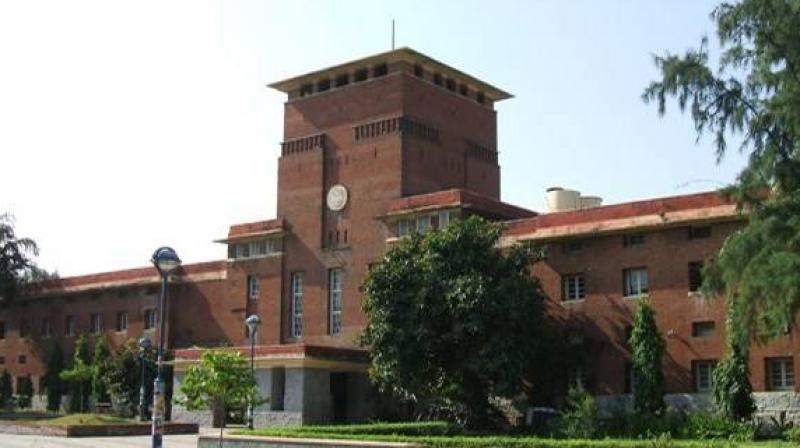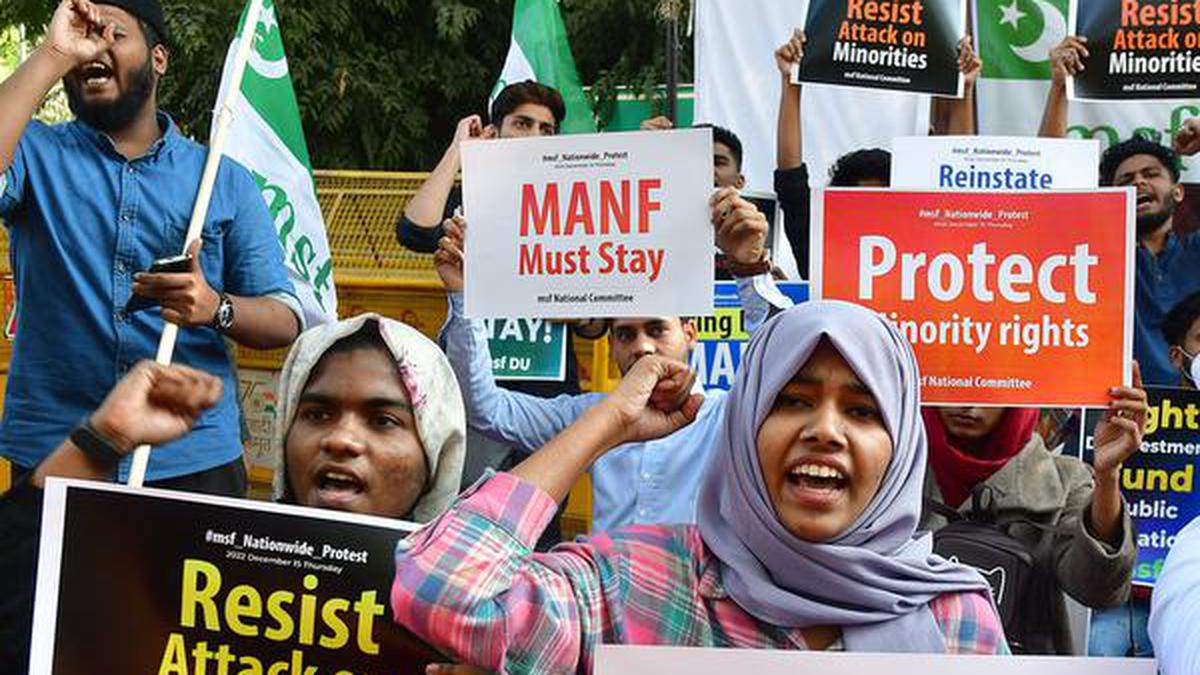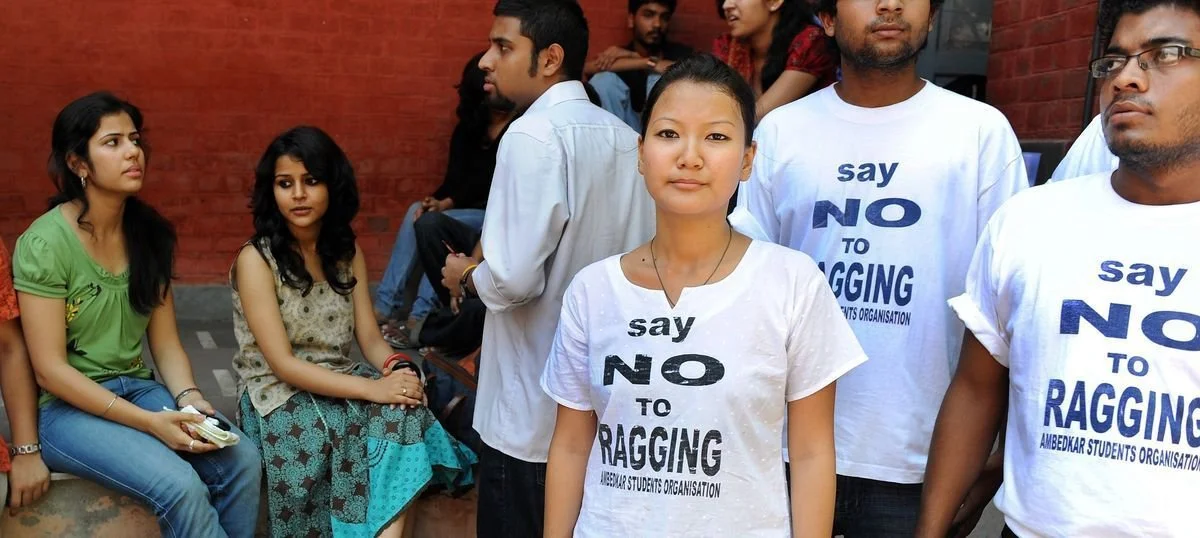Dr. Vinita Chandra is an English Professor in Ramjas College, University of Delhi. She has done her PhD from Rutgers University and has acted as a member of the Internal Complaints Committee (ICC) of DU. She has worked on numerous individual cases, along with working extensively on the issue of sexual harassment on campus.
Mitsu Sahay: The Sexual Harassment Redressal System has been functioning on campus for quite a while now, but some students are still clueless about its existence. What do you think are the reasons?
Vinita Chandra: I think that sexual harassment is just not a serious issue for a majority of people. In India, you call sexual harassment ‘eve-teasing’ where the woman is usually held responsible for it, which in turn dilutes the issue. When you go and talk to people about it, they are surprised to hear that staring, stalking, etc, are actually criminal activities.

Dr. Vinita Chandra
The Sexual Harassment Ordinance is called ‘Prevention and Punishment of Sexual Harassment’ and while people are willing to look at the ‘punishment’ part of it, they don’t seem to understand that unless you spread awareness to prevent it, it won’t even be recognized as sexual harassment.
Even women fail to recognize staring, texting, stalking, etc, as sexual harassment since this behaviour has been normalised and people are desensitized towards it. The need is to spread awareness to acknowledge that things we are enduring every day comprise sexual harassment and through this to let people know about the ordinance.
MS: Why do so many colleges still not have a committee even though it is enforced by law?
VC: I think that even when colleges recognize the issue of rampant sexual harassment on campus, there is no political will at all. If you compare it with how seriously ragging has been taken in the past few years, the law is being enforced, boards are put all over campuses, etc, but we don’t we see the same enthusiasm for prevention of sexual harassment.
One reason is that many think that women getting an education is progressive enough, and harassment is something which they have to bear as a part of stepping outside the house and studying. The administration itself has no political will to implement the law because unlike ragging, it is seen as affecting only women.
To build confidence to file complaints against teachers there needs to be a students’ movement to strengthen the position of student victims.
MS: Cases involving people of position or faculty members can get complicated and may lead to the impunity of the harasser. Is this bias inevitable? How does one avoid it?
VC: I don’t think it is ‘inevitable’, but a bias will definitely be there. More than the bias, I think 90% of students just don’t complain against the harasser if they are in a position of power.
Sexual harassment in the classroom is not uncommon and can be in the form of toxic masculinity of professors, making comments about girl students, preferential treatment of boys, etc. All these things, because of the power relations between students and teachers, are not reported because students are too intimidated to complain.
But that does not make it inevitable. In Ramjas College, students filed a case against the Vice Principal, one of the most powerful persons in college, who had been molesting boys for 20 years.
In this particular case, a fair enquiry was held but that does not mean that a fair enquiry will be held everywhere, especially with the new 2013 law by which the Principal is supposed to pick the committee members instead of holding democratically elections. This further discourages students from filing complaints against teachers.
To build confidence in students to file complaints against teachers there needs to be a students’ movement to strengthen the position of student victims. This is especially important because in most cases of teachers sexually harassing, it is not limited to one person.
If you look at the academicians accused of sexual harassment, you will see that there are always multiple victims harassed by the same person. In the Ramjas case when the boys finally started talking openly about it, they realized there were many of them. A movement amongst students, which gains momentum as a campaign in taking that complaint forward can be very effective and offers support to the victims.
MS: In the duration of the processes, a student might get intimidated and scared. Is the system sensitive towards the mental health of the victim?
VC: The law says that you have to provide a counsellor for the victim. Any sexual harassment complaint is bound to be distressing for the victim because you have to repeat what happened. One of the things in Ordinance XV-D is that the victim should never have to come face to face with the harasser. So the system is actually aimed at protecting the victim and providing counselling.
But in addition, what is essentially needed is a support group within the college itself, which is only possible through awareness. Presently the victim finds it hard to get people to believe in her complaint at the very outset. If a group of students and teachers believe in the victim, the ordeal can be less distressing.
In Ordinance XV-D, the victim should never have to come face to face with the harasser.
MS: What is the most important aspect of the sexual harassment issue that you’ve gathered with your experience on the committee?
VC: I’ve gathered that the ‘prevention part’ is much more important than punishment. In most cases, the punishment for unsolicited messages or calls, staring, even stalking is never enough. At the college ICC level, it will not get more than a written apology or maybe a few days suspension. It’s really hard to have rustication.
But prevention involves two things – one, a wide scale campaign to get students talk about what constitutes sexual harassment and consent on a continual basis to understand the issues, and second, for women to recognize sexual harassment and define it.
The most important thing, however, is that the boys need to realize that the behaviour they have learned and internalized under the patriarchal system is undesirable and unacceptable in so many ways. For this, real-time discussion among the students guided by someone with experience in the field, where the men listen to what women have to say works most effectively.
the ‘prevention part’ is much more important than punishment.
MS: An advice you would like to give students regarding the redressal system?
VC: I say this every year to every class: you don’t deserve to live in fear for even one minute. So the minute you feel that something is making you uncomfortable, don’t wait for it to happen the second or third time.
Immediately come and speak to somebody in the redressal committee, or to someone you trust. Most of the time the moment someone speaks to the harasser and points it out to them as harassment for which there are serious consequences, the harassment stops.
Students come to college to study and need to have a mind free of fear for that. If you’re sitting in class in fear of your harasser, there is no way you can learn anything. So the fact that there is a redressal system should not be taken lightly by any student at all. The minute you make that complain, you become the person with power and know that you can eliminate anything that is bothering or instilling fear in you.
Also Read: College Fests Are A Breeding Ground For Sexual Harassment | #MakeMyCampusSafe
This piece is part of our series #MakeMyCampusSafe in collaboration with Newslaundry.
Featured Image Credit: The New Indian Express




